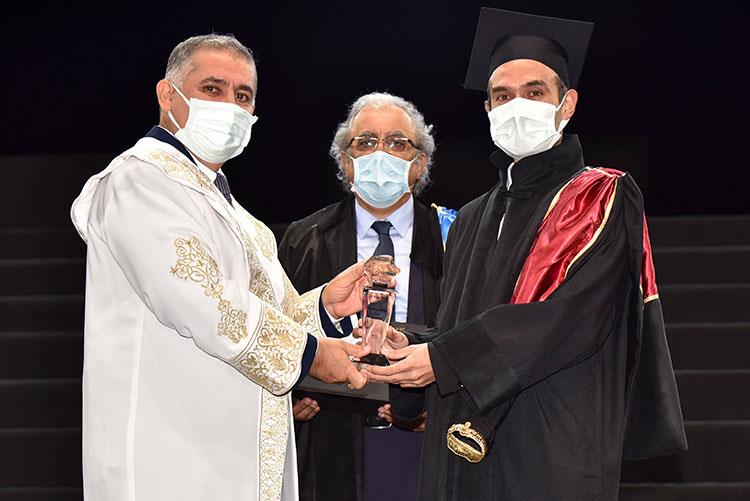Our faculty member Burak Zincir’s dissertation thesis named “An Alternative Fuel Assessment Model for Ships and Experiments on the Effect of Methanol on Diesel Engines” under the supervision of Prof. Dr. Cengiz Deniz has been awarded the Most Successful Dissertation Thesis of 2019 by ITU. Dr. Zincir received award during the graduation ceremony of the graduate students on 8 September 2021. ITU has been awarded the Most Successful Dissertation Thesis Award since 2014 for high originality dissertation thesis from various departments with supporting their thesis with high-quality journal papers. This award has been given for the first time to a Ph.D. student from the Maritime Transportation Engineering program. Thesis is one of the seventeen different theses that received the award in 2019. There were 176 Ph.D. students graduated in 2019.

The dissertation thesis consists of two parts. The first part evaluates 7 different alternative fuels with a developed assessment model from various evaluation criteria and the most suitable alternative fuel for shipboard usage is determined. The results of the assessment model are coherent with the reality of maritime transportation. The most suitable alternative fuel is LNG and methanol, ammonia, and hydrogen are following it. LNG is the most used alternative fuel in maritime transportation nowadays, and methanol-fuelled ships have been started to navigate. In addition to these alternative fuels, ammonia and hydrogen are other fuels that start to be used at maritime projects due to their carbon-free structure.
The second part of the thesis includes experimental studies that were conducted at one of the most capable motor laboratories in Europe. The experimental studies were done at Lund University, Sweden on a Scania diesel engine which can be used as a diesel generator on ships. Advanced combustion concepts were applied to combust methanol fuel at diesel engine and the effect of methanol use on engine performance and emissions were investigated. The findings of the study show that carbon dioxide emissions were reduced, sulphur oxide and particulate matter emissions were close to zero by the use of methanol. Nitrogen oxide emissions were at Tier II limits and additional precautions have to be done to comply with Tier III limits.